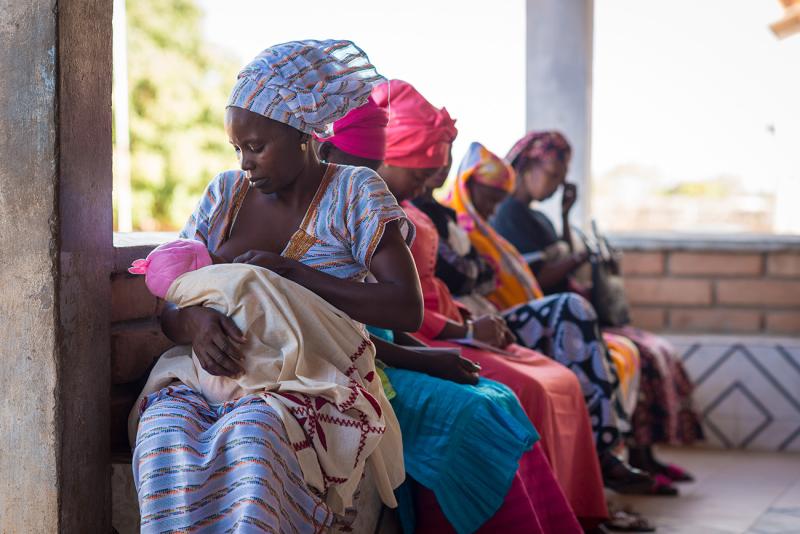Where We Work
See our interactive map


Clients waiting at the Tanaff Health Center in Senegal in 2019. Photo by Clement Tardif for IntraHealth International.
Over the past five years, more than 1.7 million children under five in Senegal received nutrition services through IntraHealth International’s USAID-funded Integrated Service Delivery – Healthy Behaviors Project—called Neema. The program also helped over 80% of health facilities in seven regions build functional referral systems to connect community members to services at nearby health facilities; made family planning services available to more people, resulting in 675,000 years of protection from unwanted pregnancies for couples through contraceptives; and monitored the growth and promotion of 62,635 children under two.
Since 2016, the program has improved health for women and children in Senegal by strengthening health services and making them accessible to more people in seven regions of the country. Neema’s two ambitious goals were to:
Despite the challenge of Senegal’s health worker shortage and the onset of the COVID-19 pandemic, Neema helped improve women’s and children’s health through the following results:
To achieve these results and increase the number of women who receive high-quality, consistent health services, Neema used IntraHealth’s Tutorat approach, wherein experienced health workers coach and mentor other health workers from the same health districts. Tutorat focuses on the specific needs of health workers through a customized approach, which assesses performance gaps, improves individual performance, and addresses individual learning needs while also minimizing disruptions in health services.
Neema also worked with health workers to prevent malaria among pregnant women and provide HIV services for community members. Program staff trained health workers on intermittent preventive therapy and the importance of long-lasting insecticide-treated bed nets; helped health facilities develop a case-management system that fills data gaps and improves care at the post; and worked with the National Malaria Control Program to implement the Seasonal Malaria Chemoprevention campaign, which reached 836,975 children under ten.
In the seven Neema-supported regions, the number of people living with HIV who were tested increased from 71% in 2017 to 81% in 2019 and the number of people on antiretroviral treatment rose to 28,960, a 17% increase from 2017.
“I’m so proud of the work we’ve done to help mothers and babies, especially the progress we’ve made with the maternal mortality rate,” says Babacar Gueye, chief of party and IntraHealth’s country director in Senegal. “We’ve made more progress in the last five years than we did during the last two decades.”
Read more:
Neema was funded by the US Agency for International Development in partnership with the National Alliance of Communities for Health (ANCS), ChildFund International, Helen Keller International, Ideas42, Johns Hopkins University Center for Communication Programs (JHU/CCP), and Réseau Siggil Jigéen (RSJ).



